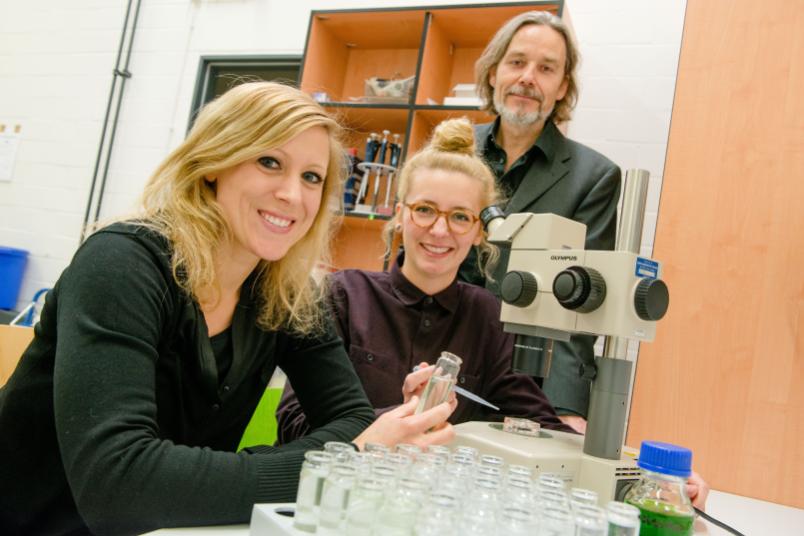
Acidification The negative impact of climate change on freshwater bodies
A lot of research is being conducted into the acidification of the world’s oceans. A recent study has proved that freshwater bodies are likewise affected. Rising carbon dioxide levels could upset the balance of species.
Oceans are not the only bodies of water that acidify due to man-made climate change; freshwater systems are likewise affected – and this, in turn, could have an impact on the organisms living in them. This is the conclusion drawn by biologists at Ruhr-Universität Bochum following an analysis of long-term data from a number of freswhater reservoirs across Germany and controlled lab experiments with freshwater organisms. The results are published by the team headed by Dr Linda Weiss, Leonie Pötter and Prof Dr Ralph Tollrian from the Department of Animal Ecology, Evolution and Biodiversity in Bochum in the journal “Current Biology” on 22th of January 2018, which is already available online.
“The acidification of the oceans is often referred to as the evil twin of climate change,” says Weiss. “The negative impact of rising carbon dioxide levels on marine ecosystems has been proved in numerous studies to date, whereas hardly any research has been conducted in freshwater systems. Our study has demonstrated that the acidification of lakes is a real problem.”
CO2 levels in four river dams analysed over a period of 35 years
The team from Bochum analysed data collected at four river dams in Germany that supply drinking water and are monitored once a month. The water management association “Ruhrverband” supplied measurement data from 1981 to 2015. Data gathered before 1999 were available only in hard copy and were digitalised by Leonie Pötter and three student volunteers over a period of several days.
The analysis showed that the CO2 levels in reservoirs had been continuously increasing and the pH value had been reduced by 0.01 on average per annum. In order to assess the ecological consequences of this change, the Bochum-based biologists investigated in what way the changed environmental conditions affect a key species in freshwater ecosystems. They worked with daphnia, also called water fleas, which are the food source for many other organisms.
Reaction to predators analysed
Daphnia form a number of different defence mechanisms in the presence of predators; they might, for example, change their shape or grow small thorns around their neck. The daphnia’s respective reaction is predator specific. The water fleas identify their predators by smelling their chemical signals, so to speak, and form appropriate defence mechanisms. This tactic ensures long-term survival of the population.
The researchers studied two daphnia species in three separate culture media that differed in terms of CO2 levels in water. To some of the daphnia samples, they added chemical signals that the water fleas typically use to detect the presence of predators: namely substances released by Chaoborus larvae and a water bug of the Notonecta species. Subsequently, they recorded in what way the daphnia reacted to the chemical signals under different CO2 conditions.
Increased CO2 levels inhibit defence mechanisms
The results were the same for both species, Daphnia pulex and Daphnia longicephala: the higher the CO2 concentration in the culture medium, the weaker the formation of the daphnia’s defence mechanisms. This is presumably because the increased CO2 levels interfere with the water fleas’ sense of smell; in water with higher CO2 concentrations, their ability to detect the chemical signals of predators and, consequently, of their presence was impaired.
“Many freshwater organisms rely on their sense of smell,” explains Linda Weiss. “If that sense is compromised in other species too due to rising CO2 levels, this development might have far-reaching consequences for the entire ecosystem. Follow-up studies must now be carried out, in order to determine if the acidification of freshwater systems is a global phenomenon and in what way other species react to rising CO2 levels.”